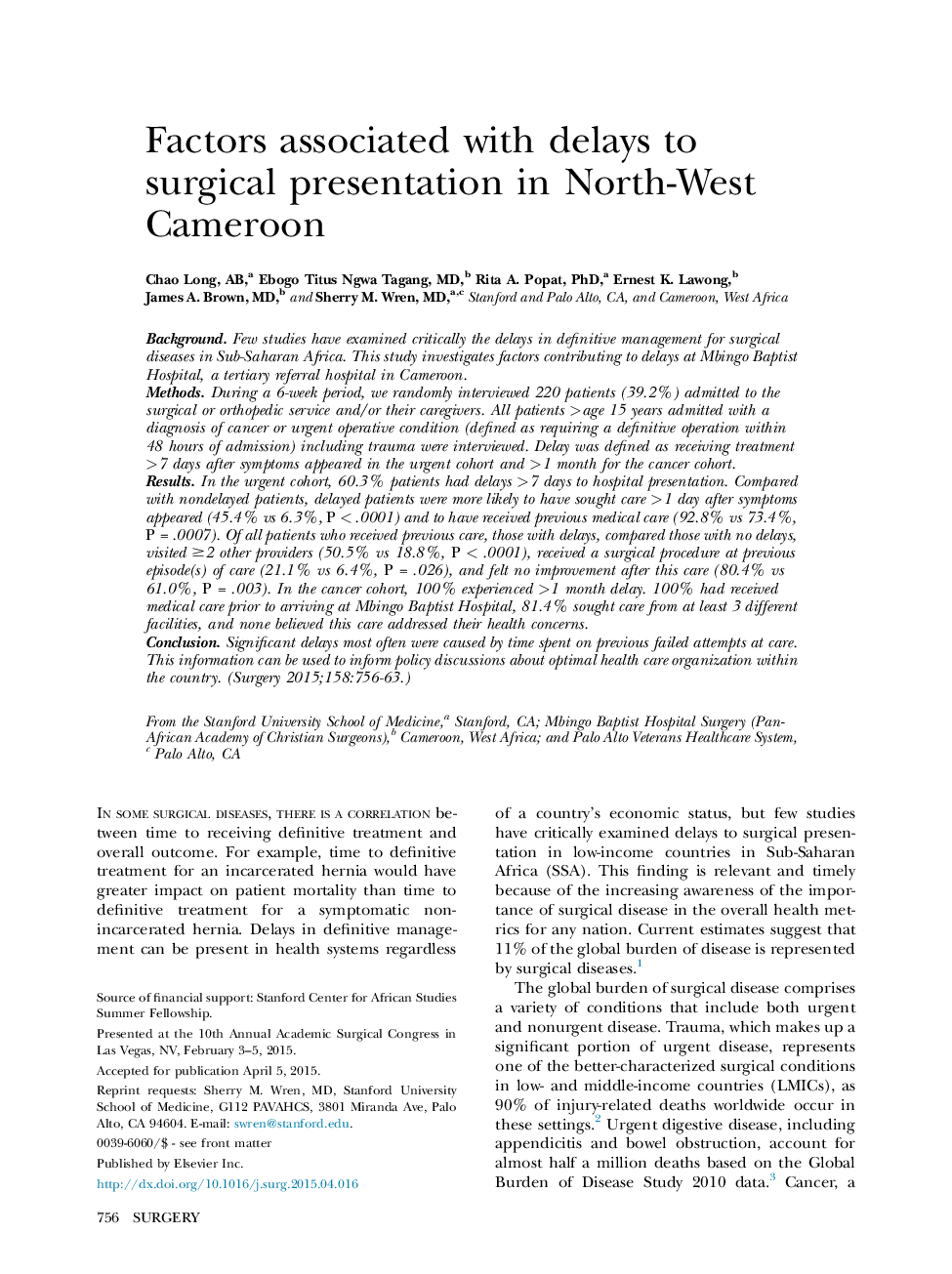| Article ID | Journal | Published Year | Pages | File Type |
|---|---|---|---|---|
| 4306704 | Surgery | 2015 | 8 Pages |
BackgroundFew studies have examined critically the delays in definitive management for surgical diseases in Sub-Saharan Africa. This study investigates factors contributing to delays at Mbingo Baptist Hospital, a tertiary referral hospital in Cameroon.MethodsDuring a 6-week period, we randomly interviewed 220 patients (39.2%) admitted to the surgical or orthopedic service and/or their caregivers. All patients >age 15 years admitted with a diagnosis of cancer or urgent operative condition (defined as requiring a definitive operation within 48 hours of admission) including trauma were interviewed. Delay was defined as receiving treatment >7 days after symptoms appeared in the urgent cohort and >1 month for the cancer cohort.ResultsIn the urgent cohort, 60.3% patients had delays >7 days to hospital presentation. Compared with nondelayed patients, delayed patients were more likely to have sought care >1 day after symptoms appeared (45.4% vs 6.3%, P < .0001) and to have received previous medical care (92.8% vs 73.4%, P = .0007). Of all patients who received previous care, those with delays, compared those with no delays, visited ≥2 other providers (50.5% vs 18.8%, P < .0001), received a surgical procedure at previous episode(s) of care (21.1% vs 6.4%, P = .026), and felt no improvement after this care (80.4% vs 61.0%, P = .003). In the cancer cohort, 100% experienced >1 month delay. 100% had received medical care prior to arriving at Mbingo Baptist Hospital, 81.4% sought care from at least 3 different facilities, and none believed this care addressed their health concerns.ConclusionSignificant delays most often were caused by time spent on previous failed attempts at care. This information can be used to inform policy discussions about optimal health care organization within the country.
